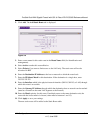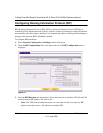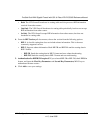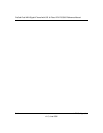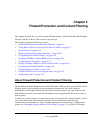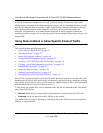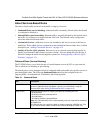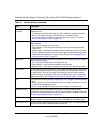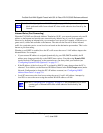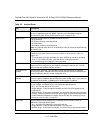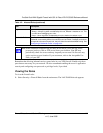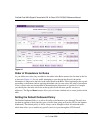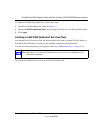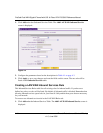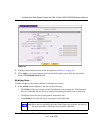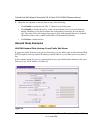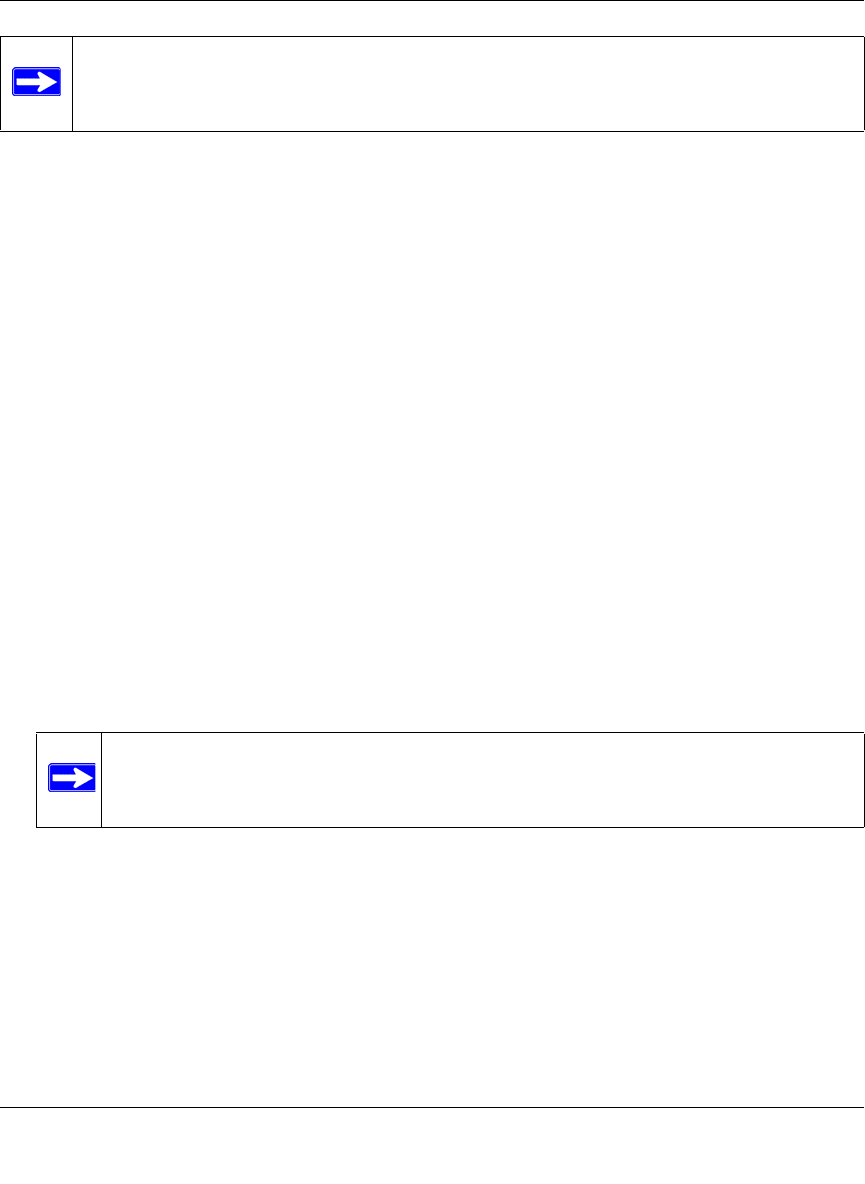
ProSafe Dual WAN Gigabit Firewall with SSL & IPsec VPN FVS336G Reference Manual
Firewall Protection and Content Filtering 4-5
v1.2, June 2008
Inbound Rules (Port Forwarding)
When the FVS336G uses Network Address Translation (NAT), your network presents only one IP
address to the Internet and outside users cannot directly address any of your local computers.
However, by defining an inbound rule you can make a local server (for example, a Web server or
game server) visible and available to the Internet. The rule tells the firewall to direct inbound
traffic for a particular service to one local server based on the destination port number. This is also
known as port forwarding.
Whether or not DHCP is enabled, how the PCs will access the server’s LAN address impacts the
Inbound Rules. For example:
• If your external IP address is assigned dynamically by your ISP (DHCP enabled), the IP
address may change periodically as the DHCP lease expires. Consider using Dyamic DNS
(under Network Configuration) so that external users can always find your network (see
“Configuring Dynamic DNS (Optional)” on page 2-17.
• If the IP address of the local server PC is assigned by DHCP, it may change when the PC is
rebooted. To avoid this, use the Reserved IP address feature in the LAN Groups menu (under
Network Configuration) to keep the PC’s IP address constant (see “Configuring DHCP
Address Reservation” on page 3-8.
• Local PCs must access the local server using the server’s local LAN address. Attempts by
local PCs to access the server using the external WAN IP address will fail.
Note: See “Configuring Source MAC Filtering” on page 4-24 for yet another way to
block outbound traffic from selected PCs that would otherwise be allowed by the
firewall.
Note: See “Configuring Port Triggering” on page 4-27 for yet another way to allow
certain types of inbound traffic that would otherwise be blocked by the
firewall.



